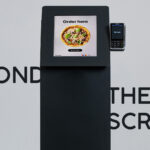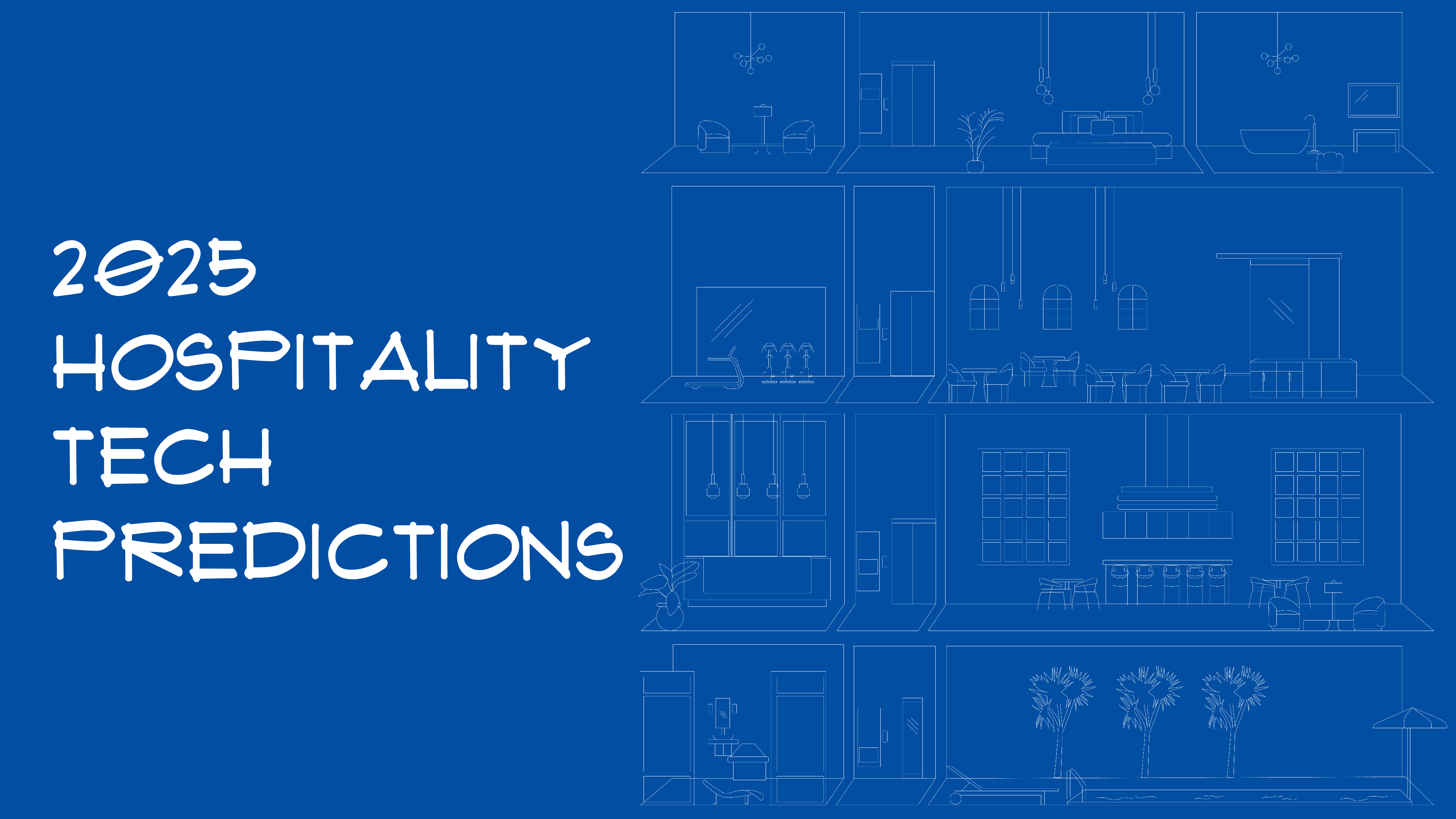Published by
“Download the App to Redeem Your Virtual Pillow Mint Today!”
Navigating hotel technology can feel like searching for the right light switch in an unfamiliar room—confusing and occasionally frustrating. So, when the future of hospitality is described as rooms adjusting to your preferred temperature or playing your favorite music upon arrival, it’s natural to feel skeptical. After all, many hotels are just now mastering basics like integrating Netflix into their offerings.
The real opportunity for hospitality tech isn’t about adding complexity; it’s about creating seamless experiences that enhance stays without getting in the way. Guests don’t want to fumble with an app to change the TV channel—they want solutions that complement their experience and make their trip memorable. Let’s explore how hotels can prioritize realistic, impactful tech strategies for 2025.
Lobby: Loyalty and First Impressions
First impressions matter. While hotel rooms often blur together in memory, lobbies stand out—whether it’s the serene welcome cocktail at Andronis Santorini or the gator-filled lobby at the Gaylord in Orlando. A strong loyalty program can have a similarly lasting impact, creating emotional and practical connections that drive repeat visits.
Loyalty programs are no small matter. Hyatt, for instance, saw a 22% year-over-year surge in program membership, reaching 51 million members in 2024.1 Why? Guests value savings, convenience, and personalized perks. Discounts remain the top motivator, with 82% of guests citing them as the most desirable benefit,2 while 58% value complimentary upgrades or late checkouts.3 For others, exclusive experiences, like VIP tours, can tip the scales.
Yet, despite these benefits, 58% of hotel customers don’t belong to any loyalty program. That’s a massive opportunity.
With loyalty influencing 40–45% of travelers’ booking decisions,4 hotels that innovate in this space can drive both retention and new memberships.
Restaurant: Employee Experience is Key
A hotel is only as strong as its staff. Behind every seamless guest experience are employees turning rooms, welcoming guests, and managing systems. But while technology can make jobs easier, it can also frustrate staff if poorly implemented. Nearly 42% of hoteliers report that new tech can feel more like a hassle than a help.5
To truly empower staff, hotels need to prioritize user-friendly systems and proper training. Simplifying operations, improving communication, and equipping employees with the right tools can improve satisfaction and productivity—benefiting guests and businesses alike.
However, challenges like legacy systems and skill gaps persist. A staggering 69% of hoteliers struggle to integrate new technologies with older systems,and 54% lack the expertise to manage them effectively.6 Investments in training, hiring tech specialists, or outsourcing management to experts will be crucial in addressing these hurdles.
With 76% of hoteliers identifying employee satisfaction as a top tech initiative for 2025, it’s clear that supporting staff is just as important as catering to guests.7
Gym: Direct Digital Bookings on the Rise
Online travel agencies (OTAs) still dominate hotel bookings, accounting for 28% of reservations in 2024. But change is coming: by 2030, direct digital bookings through hotel apps and websites are expected to overtake OTAs. Between 2019 and 2024 alone, direct digital bookings grew by 20.2%.8
Why the shift? Direct channels save hotels money on OTA commissions and provide valuable guest data for personalization. Independent hotels, in particular, see direct bookings as a way to differentiate themselves, offering unique experiences tailored to individual travelers.
For this strategy to succeed, hotels must invest in user-friendly websites and apps. Clunky interfaces or slow booking processes can result in lost revenue, especially as guest expectations for seamless digital experiences continue to rise.
Spa: Digital Check-In for Effortless Stays
After a long day of travel, nothing feels more luxurious than skipping the front desk and heading straight to your room. Digital check-in is a growing trend, with 64% of travelers wanting mobile check-in options and 60% preferring to use their phones as room keys.9 Yet, only 11% of hotels globally offer this convenience.10
Digital check-in isn’t just a guest perk—it’s an operational boon. It frees up staff from mundane tasks like printing paperwork, allowing them to focus on enhancing the guest experience. It also provides hotels with valuable opportunities for upselling, such as offering upgrades or services when guests check in via their devices.
Penthouse: Practical AI Applications
AI has become a buzzword in every industry, but it holds real potential in hospitality. From creating engaging social media content to optimizing marketing strategies and chatbots, hotels are already exploring how AI can enhance operations.11
For example, Marriott’s Homes & Villas platform uses AI-powered search to help guests find tailored vacation rentals. Guests can type “beach getaway for 5 friends in San Diego with a pool” and receive curated recommendations. Meanwhile, tools like Accor’s Adobe Experience Manager leverage AI to generate personalized guest experiences and automate routine tasks.12
AI also supports revenue management and operational efficiency, enabling hotels to forecast demand and suggest pricing strategies. By integrating these capabilities into property management systems or partnering with agencies like Bottle Rocket, hotels can stay ahead of guest needs without overwhelming their teams.
The Bottom Line
Despite the allure of cutting-edge tech, the most important feature for guests remains reliable WiFi. As hotels navigate 2025’s tech trends, they must focus on clear ROI metrics like guest satisfaction, operational efficiency, and market share growth.
For a technology roadmap that prioritizes practicality and impact, Bottle Rocket can help tailor solutions to your hotel’s unique needs. Reach out today to ensure your next innovation delivers real value.
- https://skift.com/2024/10/31/hyatt-hotels-ceo-on-loyalty-new-markets-and-sticking-with-premium-brands
- https://hospitalitytech.com/2024-customer-engagement-study
- https://hospitalitytech.com/2024-customer-engagement-study
- https://hospitalitytech.com/how-technology-empowering-hotel-guests-staff
- https://hospitalitytech.com/2024-lodging-tech-study
- https://hospitalitytech.com/2024-lodging-tech-study
- https://hospitalitytech.com/2024-lodging-tech-study
- https://skift.com/2024/11/11/the-ideal-mix-for-hotel-distribution-direct-bookings-to-lead-by-2030
- https://hospitalitytech.com/2024-customer-engagement-study
- https://research.skift.com/hotel-tech-benchmark
- https://hospitalitytech.com/2024-lodging-tech-study
- https://group.accor.com/en/Actualites/2023/10/digital-conversation-alix-boulnois-luc-dammann
Share:
Categories
tags
Related Posts


The Great Big Budget Cut: Prioritization


